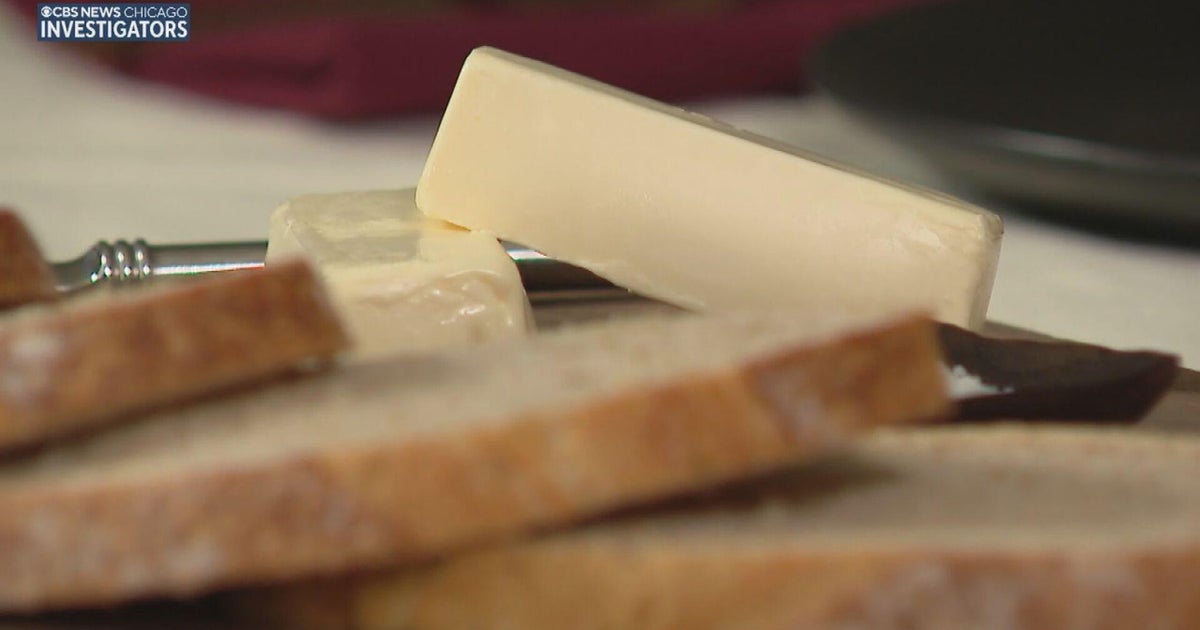A company in Batavia, Illinois is making butter in a way you’ve never seen before. No animals, no plants, no oils; this butter is made from carbon.
The sustainability-focused approach has the blessing and backing of Bill Gates.
It looks, smells and tastes like the butter we all know, but it’s made without the farmland, fertilizers or emissions tied to the typical process.
This unprecedented process is happening at the facilities of Savor in an industrial park in the suburbs west of Chicago.
“So you’re using this gas right now to cook your food and we’re proposing that we would like to first make your food with— with that gas,” said Kathleen Alexander, co-founder and CEO of Savor.
The company’s pioneering tech uses carbon and hydrogen to make sticks of butter that anyone would recognize.
“This is pretty novel, to be able to make food that looks and tastes and feels exactly like dairy butter, but with no agriculture whatsoever,” said Jordan Beiden-Charles, food scientist for Savor.
And without a long ingredient list the average person can’t pronounce.
“It’s really just our fat, some water, a little bit of lecithin as an emulsifier, and some natural flavor and color,” Beiden-Charles said.
This is how it works: Fats are made up of carbon and hydrogen chains. The goal is to replicate those chains without animals or plants. And they did it.
To put it in simple terms, Savor says they take carbon dioxide from the air and hydrogen from water, heat them up, oxidize them and get a final result that looks like candle wax but is in fact fat molecules like those in beef, cheese or vegetable oils.
The entire process releases zero greenhouse gases, uses no farmland to feed cows, and despite its industrial appearance, has a significantly smaller footprint.
“In addition to the carbon footprint being much lower for a process like this, right, the land footprint is, like, a thousand times lower than what you need in traditional agriculture,” Alexander said.
And the most important question: how does it taste? The answer is surprisingly like the butter we know and love.
The company also touts that they do not use any palm oil in the butter, and palm oil is a significant contributor to deforestation and climate change.
Of the 51 billion tons of greenhouse gases emitted every year, 7% is from the production of fats and oils from animals and plants, which Savor says makes their process the most climate-friendly option.
Right now, the company is working directly with restaurants, bakeries and food suppliers. They are releasing chocolates made with their butter in time for the 2025 holiday season.
They expect for the average consumer to be able to buy them in the near future.
“Savor Butter, in either its current manifestation or with our partners, we expect that to be on the shelves kind of more like around 2027,” Alexander said.
The teams in Batavia and their home lab base in San Jose, California, are backed by billionaire Gates who wrote in his blog, “The idea of switching to lab-made fats and oils may seem strange at first. But their potential to significantly reduce our carbon footprint is immense.”
The company believes butter can make a difference.
“This is really about how we feed our species and heal our planet at the same time,” Alexander said.


